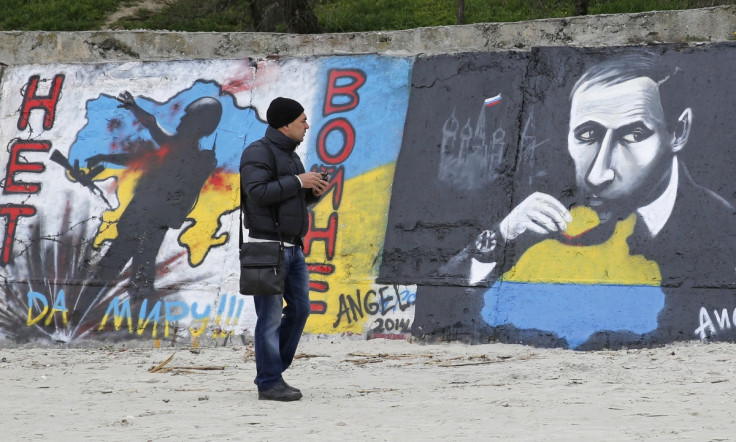Why a Russia-China Gas Deal is All About Ukraine

Russia and China have been in talks over a massive gas deal for a decade. It's been a drawn-out process, hampered by disagreements on pricing.
Suddenly however, the Russian side is confident about the prospect of a breakthrough. In fact, the folks at Gazprom took time out from lambasting Ukraine for non-payment of its (rather large) outstanding gas bill, to say that they expected a contract with China to be in place by the end of the year.
What could be behind this sudden burst of confidence?
It's worth noting that the Chinese side hasn't offered any comment on the alleged deal. There's nothing strange about that in itself as the Chinese have always preferred to negotiate the deal away from the media spotlight.
The positive noises coming out of Moscow on Wednesday are as much addressed to Europe as they are aimed at their Chinese counterparts. They are a defiant rebuke to the European Union in the wake of the newly declared Ukraine gas wars, and a sign that Moscow is happy to look east in search of new markets and it can do so with ease.
Russian gas has been at the heart of the Ukraine crisis since the early days. Protestors that braved the Kiev winter to demonstrate against the pro-Russian tendencies of then-President Viktor Yanukovych were there in part, because of gas.
The massive subsidies that Russia used to afford Ukraine, were passed on to consumers. Those gas favours bought the Kremlin a degree of power in Kiev and when the established status-quo, Moscow was very likely to retaliate.
The thought of the former Soviet state turning its back on Russia and developing stronger ties with Europe was unpalatable in Moscow.
The prospect that Russia would withdraw cheap gas from Ukraine if their man Yanukovych was dumped from office was discernable at the start and is now playing out in full.
As soon as Washington and Brussels imposed economic sanctions on Moscow in the wake of Crimea's annexation, investors worried about one thing more than any other – gas.
Indeed, Russian energy giant Gazprom wasted no time hiking the price it would charge Ukraine's European-friendly interim government and demanding immediate payment of $2.2bn worth of unpaid gas bills.
Meanwhile, amid growing concern about an impending repeat of the 'gas wars' of 2005 and 2008, European leaders spent much of last week trying to show that Europe is overly reliant on Russian gas and that the need to search for alternative energy sources is imminent. Indeed, the EU relies on Russia for a third of its gas needs. Around 40% of that comes through Ukraine.
Which brings us to this week's surprising announcements that Russian gas may be heading for China's shores in the near future. Russian Deputy Prime Minister Arkady Dvorkovich said the two sides were nearing an agreement that would involve the construction of a pipeline that would carry 38bn cubic metres of gas a year."
"Regarding Gazprom's gas contract, the sides are close to an agreement...The only issue remaining is...the price," he was quoted as saying by Itar-Tass news agency.
"We really hope that the contract will be signed in May," he added.
Gazprom weighed in with its own analysis of the state of negotiations, saying that it had made progress on the price that China would pay for the gas and that it expected the contract to come in to force by the end of the year.
The ten-year negotiations have stalled over the price that China would end up paying Russia for gas. If China can secure a lower price, there could well be a deal imminently.
With Gazprom on the back foot in Europe, China's negotiating position is stronger than in the past. However, a deal is only likely to be done if China can secure a lower price than what's been on offer so far.
If Russia is prepared to drop the price, perhaps in exchange for a big chunk of dollars upfront, then the Ukraine crisis could well turn out to be the thing that pushed the Sino-Russian deal over the line.
© Copyright IBTimes 2025. All rights reserved.





















